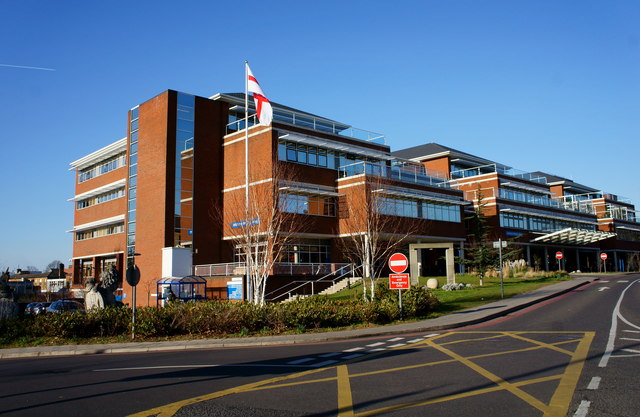St. George’s University of London
Based in Tooting, south-west London, St. George’s Hospital Medical School is the legal name for this constituent college of the University of London. REQUEST INFORMATION
KEY INFORMATION:
It is closely affiliated to St George’s Hospital. London has a population of 8.3 million (or over 13 million in the wider metropolitan region). The major international airports London Heathrow and London Gatwick are under an hour’s tube ride(Heathrow) or just over an hour’s rail journey (Gatwick) away.



UG 3600
PG 400



Six steps to St. George’s University of London
Our method to your success
FREE CONSULTATION MEETING
REPORT & INSTITUTION SHORTLIST
APPLY & RECEIVE AN OFFER
WOO HOO! YOUR OFFER IS ACCEPTED
ARRIVAL & POST ARRIVAL SUPPORT
WE ARE WITH YOU EVERY STEP OF THE WAY
LOCATION:
London is well served by underground and bus system and its major rail and coach stations offer connections to the rest of the UK as well as to France and Brussels via the Eurostar train from London St Pancras station.
The lowest average temperature in and around London is 3 degrees in January.
REQUEST INFORMATION..

Request Information - University Courses
HISTORY:
St George’s Hospital Medical School has its origins in the founding of St George’s Hospital in 1733. This institution became the second in England to provide formal training for doctors, after Oxford University. In 1834 St George’s Hospital Medical School was formally established and two years later it became affiliated with the University of London. During the 1970s, the hospital and medical school moved from their original location on Hyde Park Corner in central London, to their present base in Tooting. 1995 saw the Medical School creating a joint faculty with the University of Kingston to offer a wider variety of medical training. In 2005 it was renamed St George’s University of London.
LOCATION:
The main university campus is in Tooting, south London, but St George’s also has two sites at Kingston University just outside London. Both are well served by public transport. Horton Halls is a 15 minute walk from St Georges Hospital.
RANKING:
St George’s, University of London is ranked between 201-250th in the Times Higher Education rankings. It is ranked between 601-700th in the Shanghai Jiao Tong rankings and is not a member of the Russell Group of universities.St George's is ranked 146th in the National Student Survey Satisfaction rankings.
INTERNATIONAL:
Students at St. George's come from over 50 different countries. London has the highest percentage of international students in UK, 26% of all students studying in London are international students.Pathway entry for international students-INTO's Study Centre at St George's offers foundation courses leading to degree course entry.For more information, please visit Pathway & Foundation page.
SIZE:
Latest figures indicate a student population of 4,000, of which 3,600 are undergraduates and 400 are post-graduates.
EMPLOYMENT:
97.8% of St George’s graduates enter directly into work, further study or training within 6 months of graduation (source:HESA). A breakdown of post graduation employment by course, showing the split into professional/managerial positions, rather than general employment figures, is available from Unistats an independent source of university data. For more information, please visit the REF Information page.
FACILITIES:
The main campus in Tooting houses St George’s hospital as well as a large medical library. There is a sports centre – the medical school rugby team was established in 1863 and is one of the oldest in the world. The busy student union supports 120 societies and 37 sports teams and has long employed a “mum/dad” mentoring policy for new students by returning students. The local open air swimming pool Tooting Lido is one of the largest in the UK. Tooting is a buzzing and newly rejuvenated area of London with its own local nightlife, cafes, restaurants and shopping. In addition Tooting is well served by public transport for easy access for all of London’s famous landmarks, museums, theatres, galleries and further shopping, restaurants, clubs and bars.
ACCOMMODATION:
The medical school owns a hall of residence which aims to guarantee accommodation to all new undergraduates. Horton Halls comprises self-catered single en-suite rooms in flats of 4-8 units sharing a communal kitchen and dining area. Flats can be single or mixed sex according to preference. Contracts are typically for 42 weeks and cost for these rooms start at £176.00 per week. There is no catered accommodation.In addition to the above, St George’s students have access to the intercollegiate halls of residence owned by London University. These are situated in a variety of locations around London. Click on the link for more informationCollegiate Halls.
COST:
International students
Fees for full time undergraduate courses start at £17,250 for Occupational Therapy & Radiography, £19,250 for subjects such as Biomedical Science, and £38,500 for Medicine.
SUBJECT AREAS:
REF (Research Excellence Framework) was an independent government review conducted into the quality of research at UK universities and published in December 2014. This information highlights subjects of specialism within each university. We have listed all subject areas where at least 60% of the research conducted in these specific fields has been graded 3 or 4 stars. (4 stars being the highest ranking REF award). For more information, please visit the REF Information page.
ONLINE COURSES:
St George’s University has one program with academic accreditation, Genomics in Healthcare. They also have a range of short online courses, for career advancement. The University of London also offers a wide programme of online courses.
LIFE AT St. George’s University of London
We have been helping overseas students gain entrance to St. George’s University of London for a number of years now, progressing to high profile careers in the UK. Find out more about this school below.
Review
Coming Soon
 LOOKING FOR AN ONLINE COURSE?
Our team can help you find a relevant course for your study.
BOOK A CALL
LOOKING FOR AN ONLINE COURSE?
Our team can help you find a relevant course for your study.
BOOK A CALL
DOWNLOAD YOUR FREE GUIDE TO A QUALITY UK EDUCATION
Sign up to our free Newsletter and you'll get a free copy of our guide to accessing a UK education to help you navigate the entire process.
REQUEST INFORMATION..
Get free instant access to exclusive content and join our monthly email guide
We’re with you every step of the way and will keep you updated on the latest UK education news. Find out more about joining.
